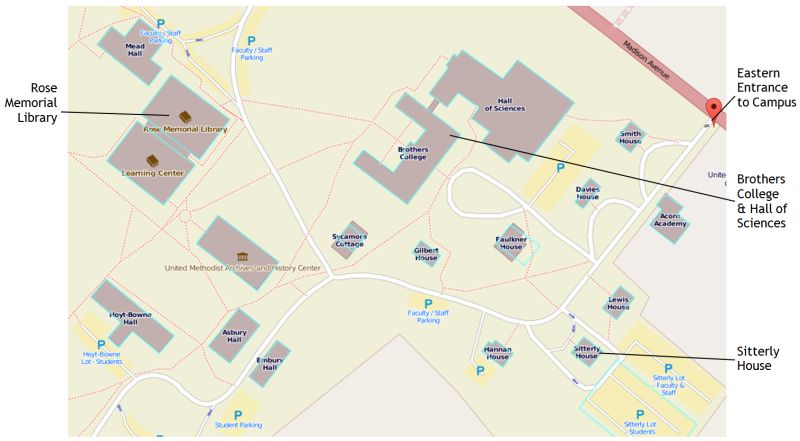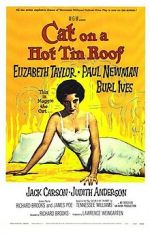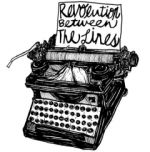|
ENGL 374-002 Download the course policies and syllabus (PDF).
"You think your pain and your heartbreak are unprecedented in the history of the world, but then you read. It
was books that taught me that the things that tormented me most were the very things that connected me with all
the people who were alive, or who had ever been alive."
|
WHAT DOES IT MEAN then to "queer" American literature? How might we look at literature through the queer lenses? Eve Kosofsky Sedgwick defines "queer" as "the open mesh of possibilities, gaps, overlaps, dissonances and resonances, lapses and excesses of meaning" in bodies, identities, genders, sexualities, and particularly in the ways we define, think about, talk about, represent, and value these things. Siobhan Somerville defines "queer" as a way "to denaturalize categories such as 'lesbian' and 'gay' (not to mention 'straight' and 'heterosexual'), revealing them as socially and historically constructed identities that have often worked to establish and police the line between the 'normal' and the 'abnormal.'" WITH THESE IN MIND, this class will engage close readings and analyses of sex, gender, sexuality, race, class, nation, and other intersectionalities. We will address the representation and politics of different identities, embodiments, and desires, particularly to critique and challenge heteronormativity and other forms of oppression. To that end, we will look at a range of American literature that may or may not be overtly about queerness or that may or may not be ostensibly by queer writers or artists including Charlotte Perkins Gilman, Nella Larsen, Ernest Hemingway, F. Scott Fitzgerald, J. D. Salinger, Tennessee Williams, Allen Ginsberg, James Baldwin, Toni Morrison, Annie Proulx, and Alison Bechdel.
A REQUIREMENT for this class is a well-developed curiosity and a willingness
to explore and interrogate interdisciplinary lines of inquiry. Our class will be organized around an intensive
survey of readings engaging literature, scholarship, old and new media, and popular culture. This class will
take up reading and rereading as critical practice, extend and expand what it means to close read, and how
literature can be deployed as theory, as dramatizing the concerns, wonders, struggles, and politics of lived
life and experience. This class will spend the semester reading, thinking, researching, and writing about various
narratives and how and what these texts argue, reveal, narrate, hide, perpetuate, and complicate the world we live in.
|
"First sentences are doors to worlds."
Required Course Texts & Materials
• ENGL 374 Course Reader (available in Sitterly 108) |
|
Course Requirements
Presentation (20%)
"An idea that is not dangerous is unworthy of being called an idea at all."
"You must write, and read, as if your life depended on it."
"Authors do not supply imaginations, they expect their readers to have their own, and to use it." |
Requirements & GradingYour grade should not be the sole exigence or motivation for this class. It is the hope of the course that you walk away from English 374 with something more. Find some pleasure and some edification and some knowledge from this class (or any class really) and success is usually not far behind. With that in mind, your grade will be a reflection of engagement, effort, close reading, critical thinking, writing, and participation. Critical Essay & Question Presentation (20%) You will be a required to sign up for an oral presentation during the course of the semester. For your presentation, you will read the texts assigned for a particular week, research a scholarly essay relevant to the texts and course, distribute the essay to the class the week prior, generate a critical question, and lead the class discussion for the day. Research Proposal Memo (10%) At midterm to prepare you for your Seminar Paper, you are required to prepare a one-page memorandum addressed to me that outlines your specific paper topic and working claim, a brief outline of the paper and possible subclaims, a proposal arguing why the paper is relevant and doable, and a brief bibliography of useful research. You will turn in the research proposal at a one-on-one conference with me. You cannot proceed with your major paper without a completed and approved research proposal and paper topic. Seminar Paper (30%) The semester culminates in an 8-12 page seminar paper building on the critical question, claim, and research you started with your Research Proposal. The seminar paper must focus on one (or two) of the course's novels, articulate a specific analytical argument that engages one or more of the theoretical and critical lenses raised by our class, and integrate and incorporate recent, relevant academic research. A substantive draft, which will count toward your seminar paper's final grade, will be due approximately two weeks before the final is due. See the seminar paper prompt for more information. Critical Review (10%) You will be required to write a short, 500-700 word, single-spaced critical review of a text not covered by the course that you believe fits the critical, theoretical, and intellectual stakes of this class. You will locate a text, close read the text, and generate an academic critique and assessment of the text's value for study. In other words, what text might you include in a class like ours? You must have your text approved by the instructor. The critical review will be turned in and published on the course blog and is due by the last day of instruction. Participation and Preparedness (30%) Preparedness and participation forms a large component of your final grade. It is essential that you prepare for class, attend class, and participate. Missing class may seriously compromise your ability to do well in this class. Moreover, negative participation will hurt your participation grade. Participation is determined by 1) your respectful presence in class and interactions with me and others, 2) your willingness to discuss, comment, and ask questions, 3) your preparation for class, which includes bringing required materials to class and doing all of the assigned reading for class, 4) your engagement in group work, and 5) your care and use of the class moodle--henceforth called the "class blog"--bookmark the address, check and comment regularly, think of the blog as an extension of class: https://moodle.drew.edu/2/course/view.php?id=676
Finally, failure to turn in homework, incomplete assignments, or late papers will negatively impact your participation grade.
|
Download the course policies and syllabus (PDF).
"I don't pretend we have all the answers. But the questions are certainly worth thinking about."
"Literature is analysis after the event."
"Read in order to live."
|
|
|
Attendance
Attendance is required. If you are absent, you miss the explanation of an assignment, the discussion of a reading,
the chance to participate, and overall, the class as a community of learning. Also, you are expected to be in class
on time. Class will start immediately at the appointed time. In the first minutes of class I may make important
announcements, establish the agenda for the class meeting, begin immediately with an important lesson, or field
questions. If you come in after we start class, even by only a few minutes, you are late you will be marked as such.
Chronic or conspicuous attendance problems will negatively affect your overall participation grade for the class.
Moreover, absences for more than ten class session (60% of class time) will result in a failing grade regardless of reason.
If you know you are going to or must miss class, please let me know (via email) as soon as possible and make any
necessary arrangements. When you do miss class, always find another student to get class notes or see me during
office hours in order to make up missed work in a timely manner. You are always responsible for all material
covered during your absence.
|
|
|
Paper Formatting 1) 1" margins top, bottom, left, and right on each page. 2) Single-spaced block header with your name, date, course, my name. For example:
Student Name 3) Appropriate title. 4) Print single-sided. Papers are double-spaced with paper page numbers in the upper right hand corner; no extra space between paragraphs. 5) Standard Times Roman Font, 12 point only. 6) Correct MLA citation and bibliographic format. A paper turned in without a bibliography automatically fails and will be returned with no comments. For further details, see the seminar paper assignment sheet. |
Assignment FormatAll papers must be typed or produced on a word processor. All documents should be saved in Microsoft Word format; if you do not have access to Word, then save your documents in PDF or Rich Text Format (RTF). All papers must follow the manuscript format outlined by the assignment. All papers must use MLA citation and documentation conventions. All papers must be neatly printed (in black), single-sided, stapled in the top, left-hand corner if necessary, and not be three-hole punched. Papers that do not follow these format guidelines will not be accepted. They will be returned unread to you. Papers will be regarded as late until they are resubmitted in the proper format. The Research Proposal and the Critical Review have different manuscript guidelines detailed by their assignment prompts. Always make a backup copy of every paper you turn in, lest you be one of the unhappy people whose paper is eaten by the computer. You may even want to take the precaution of e-mailing your paper to yourself as an attachment at least a couple of times during the drafting process and certainly BEFORE you exit the document for the last time and leave the computer. This way, even if you lose your flash drive or your paper gets mysteriously erased, you still have a copy in your e-mail files.
Evaluation RubricOver the course of the semester, your assignments will receive feedback and comments that will identify what you are doing well and what still needs improvement. Your grades assess your fulfillment of the assignment, the quality of work, detail, analysis, and argumentation, overall effort, and finally, style, polish, and risk taking. Consider the following evaluation rubric as signposts or a kind of legend to your progress and evaluation:
• Outstanding (A/A+): Offers a very highly proficient, even memorable demonstration
of the trait(s) associated with the course or assignment goal(s), including some
appropriate risk-taking and/or creativity. |
Late Assignments All assignments must be done completely and turned in on time. Late assignments will be penalized half a grade for every day that they are late. So, if your essay is late by one day and you received a B- for your work, then your final grade would be a C+. Moreover, I will not comment on late work. However, you still need to complete late work or you will receive a zero. If you miss class on the due date of a paper, you must notify me and make arrangements to get the paper to me as soon as possible. Unless previously arranged, I DO NOT accept assignments via email. Remember that a paper has not been officially handed in until it is in my hands. Never turning anything in late is always the best policy. |
|
Contact Ed
Office:
Download the course policies and syllabus (PDF). |
Finding HelpMy office and office hours are listed in the left sidebar. I am available during that time and by appointment to help you. I encourage you to come see me early in the semester even if it is just to talk about the class, about the assignments, or about school in general. I may ask you to meet with me when I think a conference would be useful. My office is located on the third floor of Sitterly House (southeast of Brothers College), Room 303. See http://www.drew.edu/map/buildings/sitterly-house/.

I am also available electronically by email and the course blog. Email and the blog are the best means of contacting me. I will do my best to answer your emails and blog posts, usually within twenty-four hours. If there is an emergency and you need to reach me, please contact the main English office in Sitterly 108. Furthermore, when time permits, I will supplement my office hours with virtual hours via AOL Instant Messenger or Google Talk (nickname: EDagogy); if I am logged in, during reasonable hours, you are more than welcome to discuss the class or ask questions. Please, when you initiate an IM conversation for the first time, please identify yourself to me; also, be patient because my responses may not be immediate. You can find additional writing help at the Drew University Writing Center, a good resource for this class and other classes. The Writing Center is located on the first floor of Brothers College (opposite Java City) and offers a variety of services including help with papers, brainstorming ideas, help with reading, and research. See http://www.drew.edu/writingstudies/writing-center to make an appointment and for more information.
Further resources, both on- and off-campus can be found on the Links page of the course website:
http://www.edmondchang.com/106/links.html.
|
"When I read great literature, great drama, speeches, or sermons, I feel that the human mind has not achieved
anything greater than the ability to share feelings and thoughts through language."
"My imagination makes me human and makes me a fool; it gives me all the world and exiles me from it."
"I have never let my schooling interfere with my education."
|
|
"You don't have to burn books to destroy a culture. Just get people to stop reading them."
"If one is lucky, a solitary fantasy can totally transform one million realities." |
Learning (With) TechnologyUnless you have an official accommodation, the use of technology in our classroom is a privilege, not a right. Mobile devices like phones, media players, and cameras should be off and put away. Computers and tablets should be used for note-taking, in-class work, and readings only. Print is generally preferred for course texts and readings, but full-size e-versions are acceptable provided the student is able to readily highlight, annotate, and index. Finally, be conscientious and respectful in the use of the course website and social media and post no material from class to the internet or non-class sites without explicit permission from the instructor and the class. Keep in mind these three rules: 1) Use the Right Tool for the situation and the task--keep it simple and elegant, 2) Practice Best Practices--it must improve or enhance your learning, 3) Be a Good Neighbor--it cannot distract or detract from others' learning. Inappropriate use and abuse of technology in class will result in the taking away of technology privileges for the offending student and/or class as a whole.
Academic DishonestyAll students are required to uphold the highest academic standards. Plagiarism, or academic dishonesty, is presenting someone else's ideas or writing as your own. In your writing for this class, you are encouraged to refer to other people's thoughts and writing--as long as you cite them. Many students do not have a clear understanding of what constitutes plagiarism, so feel free to ask questions at any time. For our class, plagiarism includes:
• a student failing to cite sources of ideas If you have any doubt about how to cite or acknowledge another's writing, please talk to me. It is always better to be safe than sorry. Any case of academic dishonesty will be dealt with according to the guidelines and procedures outlined in Drew University's "Standards of Academic Integrity: Guidelines and Procedures." A copy of this document can be accessed on the CLA Dean's U-KNOW space by clicking on "Academic Integrity Standards." Play it smart, don't plagiarize!
Accommodations
Should you require academic accommodations, you must file a request with the Office of Disability Services
(BC 119B, 973-408-3962, anambiar@drew.edu). It is your
responsibility to self-identify with the Office of Disability Services and to provide faculty with the appropriate
documentation from that office at least one week prior to any request for specific course accommodations.
There are no retroactive accommodations. The deadline to request Letters of Accommodations for all students
currently registered with the Office of Disability Services is 09/10/2013.
|
"It is very nearly impossible...to become an educated person in a country so distrustful of the independent mind."
"I entered the classroom with the conviction that it was crucial for me and every other student
to be an active participant, not a passive consumer...[a conception of] education as the practice
of freedom.... education that connects the will to know with the will to become. Learning is a
place where paradise can be created."
|
|
|
© 2013-14 Edmond Chang. All original material. All rights reserved. Contact the webmaster of this site. These pages are best viewed with Mozilla Firefox or Internet Explorer. Open your browser to the largest viewable area. These pages are hosted by ED(MOND)CHANG(ED)AGOGY, the academic, professional, and creative website of Edmond Y. Chang. |
|



















